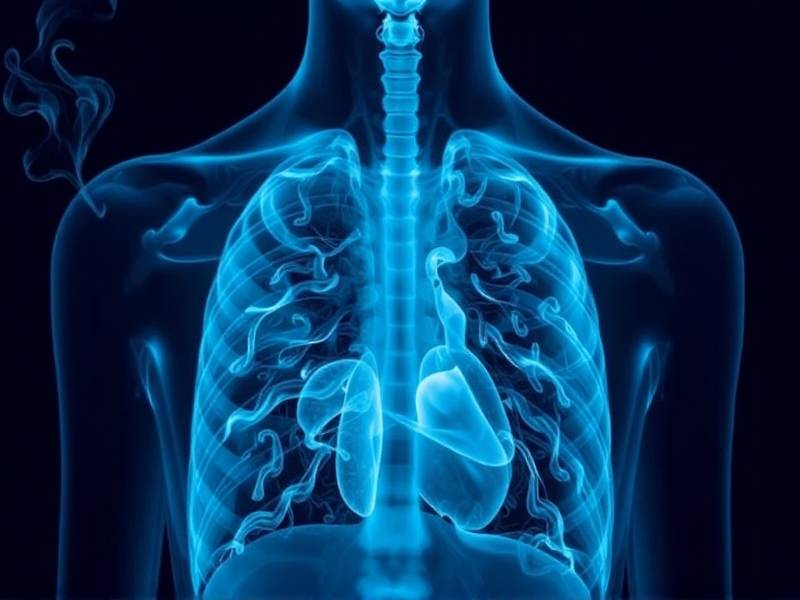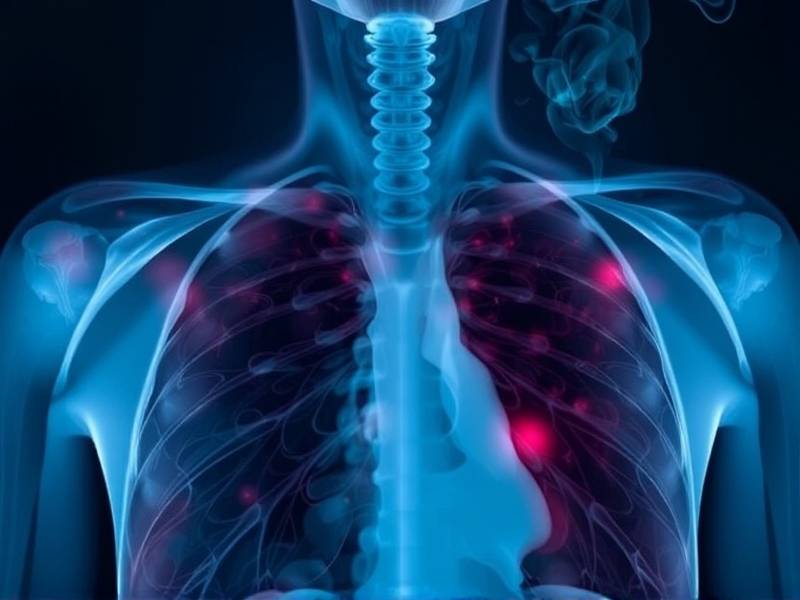Can Quitting Smoking Really Cure Emphysema?
Can Quitting Smoking Really Cure Emphysema? A Comprehensive Look
Introduction Emphysema is a chronic lung disease that affects millions of people worldwide. It's characterized by the destruction of lung tissue, leading to symptoms like shortness of breath, coughing, and wheezing. Many individuals who suffer from this condition are smokers, and it's no surprise that quitting smoking is often seen as a potential cure for emphysema. But can quitting smoking really cure emphysema? Let's delve into this topic and explore the facts.
Understanding Emphysema Emphysema is primarily caused by long-term exposure to irritants, such as tobacco smoke. This leads to the damage of the alveoli – tiny air sacs in the lungs – which results in the loss of elasticity and surface area. Over time, this damage causes breathing difficulties and other complications.

The Role of Smoking in Emphysema Smoking is the leading cause of emphysema. The harmful chemicals in tobacco smoke inflame and damage the airways, leading to chronic inflammation and scarring of lung tissue. This process accelerates with prolonged exposure to these irritants.
Can Quitting Smoking Cure Emphysema? While quitting smoking cannot reverse the damage already done to your lungs, it can significantly slow down the progression of emphysema. Here's how:
- Reduces Inflammation: Quitting smoking reduces inflammation in the lungs, which can help slow down the progression of emphysema.
- Improves Lung Function: Over time, your lung function may improve as your body heals from the damage caused by smoking.
- Reduces Risk of Complications: By quitting smoking, you lower your risk of developing other complications associated with emphysema, such as chronic bronchitis or pneumonia.
Alternative Treatments for Emphysema While quitting smoking is an essential step in managing emphysema, there are other treatments available that can help manage symptoms and improve quality of life:
- Pulmonary Rehabilitation: This program combines exercise training, education about your condition, nutrition advice, and counseling on how to cope with chronic lung disease.
- Oxygen Therapy: In some cases, patients with severe emphysema may require oxygen therapy to help them breathe more comfortably.
- Medications: Bronchodilators can help open up narrowed airways in your lungs while corticosteroids reduce inflammation.
Conclusion While quitting smoking cannot cure emphysema entirely, it plays a crucial role in slowing down its progression and improving overall lung health. If you're a smoker with emphysema or at risk for developing it, consider seeking support from healthcare professionals to quit smoking today.
Remember that early detection and treatment are key factors in managing emphysema effectively. So don't hesitate to consult a doctor if you're experiencing symptoms or have concerns about your lung health.
By taking control of your lifestyle choices and seeking appropriate medical care, you can take significant steps towards improving your quality of life with emphysema.

References:
- Centers for Disease Control and Prevention (CDC): https://www.cdc.gov/tobacco/basic_information/quit_smoking/index.htm
- American Lung Association: https://www.lung.org/air-quality/lung-disease/emphysema/
- National Heart Lung Blood Institute (NHLBI): https://www.nhlbi.nih.gov/health-topics/emphysema
